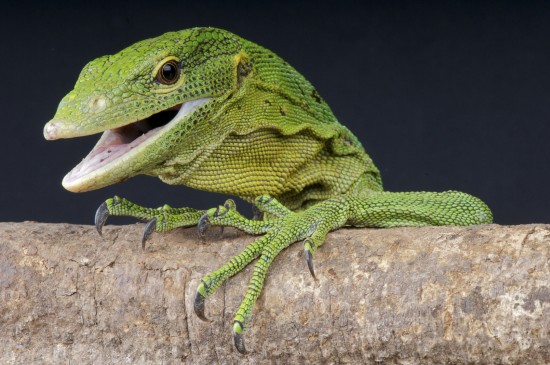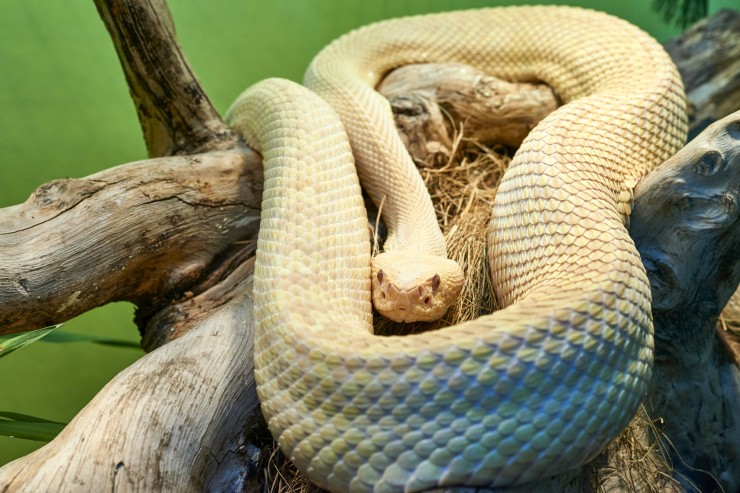
A recent article in The Japan Times was about the suspended sister city relationship between the town of Taiji, in Wakayama prefecture in Japan, and the coastal town of Broome in Western Australia. Ties between Taiji and Broome date back at least 100 years to the pearling industry in Broome. In 1910, Broome was the biggest pearling center in the world and many Japanese worked there. Then diving was the only way to find pearls. Divers brought oysters to the surface and looked for pearls inside the shells.
A parasite may enter the oyster shell, and the oyster protects itself by creating layers of nacre around the parasites. The parasite changes and grows and ultimately, a pearl is formed inside the oyster. Today, however, pearls like salmon and trout, are farmed. A small, rounded bit of shell is inserted into an oyster. The oyster is returned to the water, and the pearl slowly forms in the oyster shell. Pearl formation takes a few years.
Unlike diamonds or gold, pearls need nothing to be finished. They emerge from their shells and are ready for rings and necklaces. Before pearl farming, pearls came from the ocean. Divers dove to the bottom of the ocean searching for oysters. Most of the divers in the pearling industry in Broome were from Taiji. Between the bends and the shark attacks, diving was a dangerous business. According to some sources, the job killed approximately half of the divers.
The Japanese cemetery in Broome has the graves of 919 Japanese divers who died trying to take riches from the sea. Others were lost at sea and their bodies never found. When World War II started, the Japanese divers were imprisoned in prisoner of war camps. Ironically, the war probably saved many of their lives.
Taiji was a whaling town for hundreds of years and the birthplace of Japanese traditional whaling techniques. These techniques were developed in the 17th century when Wada Chubei introduced group hunting and a new handheld harpoon. Later, a whaling net technique was also introduced. Group hunting lasted for several hundred years until an accident claimed over a hundred lives in 1878. Group hunting then collapsed. Taiji suspended commercial whaling in 1988.
Today in Taiji, commercial dolphin hunting is a major business. Some of the dolphins are sold to aquariums around the world. Other dolphins are slaughtered and sold to eat. Much dolphin is apparently eaten in Taiji and the media has told us about the high mercury content of the dolphins and the Taiji residents who eat them. Taiji has been subjected to both domestic and international criticism and pressure to stop commercial dolphin hunting. Still no acceptable alternative employment has yet been proposed for the Taiji residents who depend on commercial dolphin hunting for income.
The town of Broome has recently been subject to both domestic and international criticism and pressure concerning the town's sister city relationship with Taiji. In late August this year, the Broome local council suspended their sister city relationship with Taiji until commercial dolphin hunting stops. Broome has also requested both Australia and Japan to assist Taiji in developing alternatives. Broome hopes that the people of Taiji can earn their living in another way and the sister city relationship can be resumed.
Aaron Language Services on the web at http://www.aaronlanguage.com provides translation, proofreading, and online English coaching to a primarily Japanese client base.
 Green Tree Monitors As Pets
Green Tree Monito
Green Tree Monitors As Pets
Green Tree Monito
 Do Pet Snakes Have To Eat Live Food?
Do Pet Snakes Hav
Do Pet Snakes Have To Eat Live Food?
Do Pet Snakes Hav
 Avoiding Hereditary Health Problems When Breeding Pedigree Dogs
Avoiding Heredita
Avoiding Hereditary Health Problems When Breeding Pedigree Dogs
Avoiding Heredita
 All About The Chorkie Dog
All About The Cho
All About The Chorkie Dog
All About The Cho
 Some Important Information For Potential Buyers Of A Basset Hound
Some Important In
Some Important Information For Potential Buyers Of A Basset Hound
Some Important In
Copyright © 2005-2016 Pet Information All Rights Reserved
Contact us: www162date@outlook.com